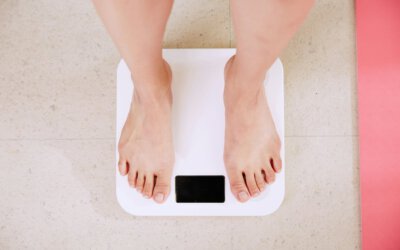Whether you’ve had a gastric sleeve, gastric bypass, or another bariatric procedure, surgery is just the beginning of your weight loss journey. Long-term success depends on consistent nutrition, lifestyle changes, and ongoing medical support.
If you had your surgery abroad and feel unsure about follow-up care in Ireland, know that you’re not alone. This guide outlines evidence-based nutrition tips to help you maintain weight loss, avoid nutrient deficiencies, and thrive after bariatric surgery. This is not intended to replace any advice you have received from a healthcare professional and outlines general guidelines and advice given.
1. Follow Your Staged Eating Plan
After surgery, your digestive system is altered, and you must follow a structured recovery plan. This may look like:
- Liquid phase: 1–2 weeks
- Pureed phase: 2–4 weeks
- Soft foods: 4–6 weeks
- Regular textured foods: After 6–8 weeks
Your staged eating plan should be advised by your consultant or dietitian involved in your doctor. Each stage helps healing, prevents complications, and supports your adjustment to smaller portions. Rushing can cause nausea, vomiting, or strictures. Always follow your surgeon and dietitian’s guidance.
2. Prioritise Protein Every Day
Protein helps preserve lean muscle mass, supports healing, and keeps you fuller for longer. Most people need at least 60g of protein daily (varies by body size and surgery type).
Protein-rich options:
- Eggs, cottage cheese, low-fat Greek yoghurt
- Lean poultry, fish, tofu, beans (as tolerated)
- Whey, soy, or clear protein supplements (if you have not been prescribed protein supplements already)
Include protein at every meal and work with your dietitian to find foods that suit you.
3. Take Your Supplements for Life
Bariatric surgery changes how your body absorbs nutrients, meaning lifelong vitamin and mineral supplements are essential — even without current deficiencies.
Common supplements include:
- Complete multivitamin and mineral (with thiamine, iron, selenium, zinc, folic acid, copper)
- Vitamin B12 (often by injection)
- Calcium + Vitamin D
- Vitamins E and K
- Additional iron or vitamin A if needed
Annual blood tests help adjust your supplements as needed.
- Practice Mindful Eating
Your new stomach holds just 30–150ml of food. Avoid discomfort and “dumping syndrome” by:
- Chewing each bite well, up to 20–30 times
- Using small plates and portions
- Stopping at the first sign of fullness
- Avoiding drinks with meals (wait 30 minutes before/after)
Dumping syndrome can cause nausea, dizziness, diarrhoea, and rapid heartbeat — often triggered by sugary foods.
- Stay Hydrated
Aim for 1.5–2 litres of fluid daily in small sips. Avoid:
- Fizzy drinks (cause bloating)
- Excess caffeine
- Alcohol (absorbed faster post-surgery)
A marked water bottle or phone reminders can help keep you on track.
6. Support Your Mental Health
Surgery doesn’t automatically resolve emotional eating or body image challenges. Consider:
- Behavioural therapy or intuitive eating courses
- Support groups (online or local)
- Psychologist referrals for eating disorders or trauma
Mental wellbeing is as important as nutrition for long-term success.
7. Maintain Ongoing Follow-Up
The HSE recommends at least two years of follow-up, but ideally longer. Regular reviews with your dietitian, GP, and surgeon help track your progress, manage complications, and adjust your care plan.
If you had surgery abroad, speak to your GP about referral options for continued support in Ireland or book an appointment with a Webdoctor Dietitian for today. No referrals, no waiting list.




